Textbooks
Browse or search textbooks or find out more about the publications' authors. Download the ebook for free or buy a print-on-demand copy.
Displaying results 1241 to 1250 of 2644.

Aboriginal History Journal: Volume 3 »
Publication date: 1979
Since 1977 the journal Aboriginal History has pioneered interdisciplinary historical studies of Australian Aboriginal people's and Torres Strait Islander's interactions with non-Indigenous peoples. It has promoted publication of Indigenous oral traditions, biographies, languages, archival and bibliographic guides, previously unpublished manuscript accounts, critiques of current events, and research and reviews in the fields of anthropology, archaeology, sociology, linguistics, demography, law, geography and cultural, political and economic history.
Aboriginal History Inc. is a publishing organisation based in the Australian Centre for Indigenous History, Research School of Social Sciences, The Australian National University, Canberra.
For more information on Aboriginal History Inc. please visit aboriginalhistory.org.au.
Download for free
Not available for purchase

German New Guinea: the annual reports »
Publication date: 1979
Published Press Archives http://press.anu.edu.au/node/3999 ANU_Press_German_NG_Annual_Reports.jpg ANU Press German New Guinea: the annual reports Monday, 1 October, 1979 Not available http://hdl.handle.net/1885/131772 Scholarly Information Services Sack, Peter & G Clark, Dymphna

Moral claims in world affairs »
Publication date: 1979
Establishing national needs and the policies that flow from them as not only contingent or expedient, but also 'right' and 'due' is meant to lend them a special and pervasive force, and practitioners of world affairs are prone to invest even their most commonplace behaviour with a sense of moral sanctity. This collection of essays explores in general terms the nature of the moral claims common in global politics and the phenomenon of partisan cosmopolitanism in particular. Detailed discussions are presented of the attempts to rescue a single body of human ideals from the multitude of systems that presently prevail, of the group, rather than universal basis of human morality, of the perennial tension between 'realism' and 'idealism', of human rights, justice and evil in the politics of the Powers. The racial conflict in Southern Africa and the moral precepts that inform the foreign policies of China and the Soviet Union are also surveyed. Here moral claims are considered in situ, as they emerge from specific political situations and are coloured by specific ideological perspectives. Although moral discourse is an integral part of any political enterprise, the question of 'morality' in international affairs is a curiously neglected one. This book seeks explicitly to confront our competing ideas of how the world is and how we would like it to be.
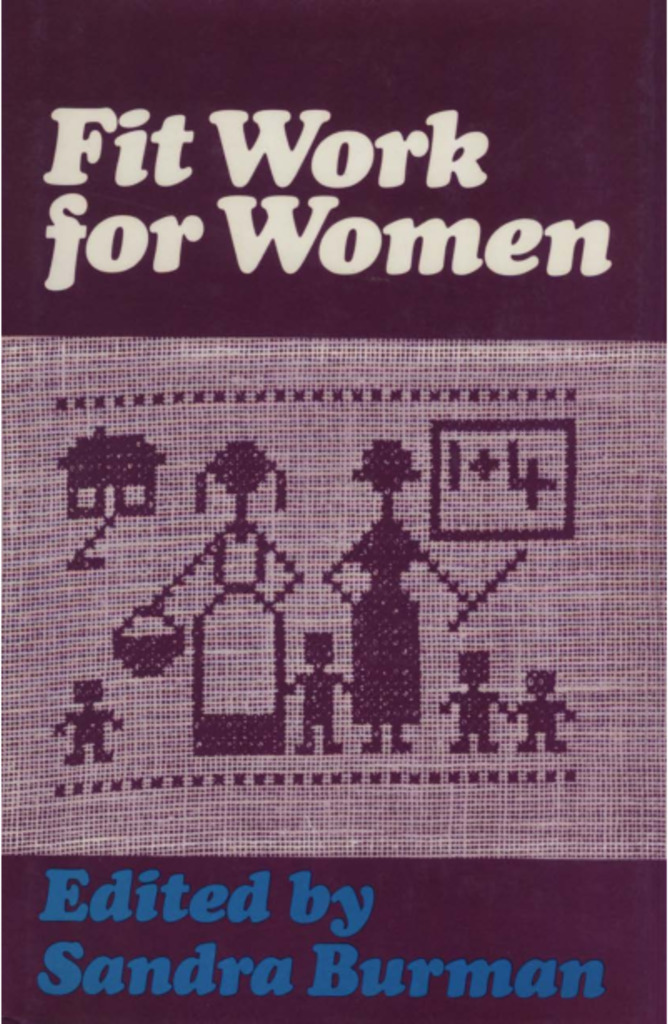
Fit work for women »
Publication date: 1979
This book presents a collection of papers which discuss the origins of the domestic ideal and its effects on activities usually undertaken by women: not only on women's wage work, but also on activities either not defined as work or accorded an ambiguous status. It begins with a discussion of how Evangelical aims led to the formation of the ideology of domesticity, which was subsequently moulded to other purposes by economic forces. Within this ideology, the one public arena considered suitable for work by upper-class women was philanthropy. The second paper examines this activity, discussing its immediate and long-term effects on both official policy and on women of the middle and working classes. A study of landladies in the nineteenth and twentieth centuries brings to light new aspects of the ideology of domesticity and has interesting implications for theories of women's autonomy, as has the paper in which the little-discussed working-class radical suffragists are examined. The effects of the domestic ideal on Labour Party and trade union attitudes to feminists are themes in both this study of the suffragists and in the succeeding paper on militancy and acquiescence among women wage workers today, which questions the stereotype of the passive woman worker. Modern society is further analysed in a discussion of how and why the legal system reinforces activity specialisation according to gender, and in an examination of why both pre-pre-war capitalism and the modern Welfare State have been unable to meet the needs of dependents. The final paper deals with the nature of domestic work, highlighting inadequacies in current theory and suggesting a new approach to the domestic labour debate. This collection reflects the increasing recognition that in order to understand women's roles today, it is necessary to examine not only their current manifestations, but also their origins and early development.
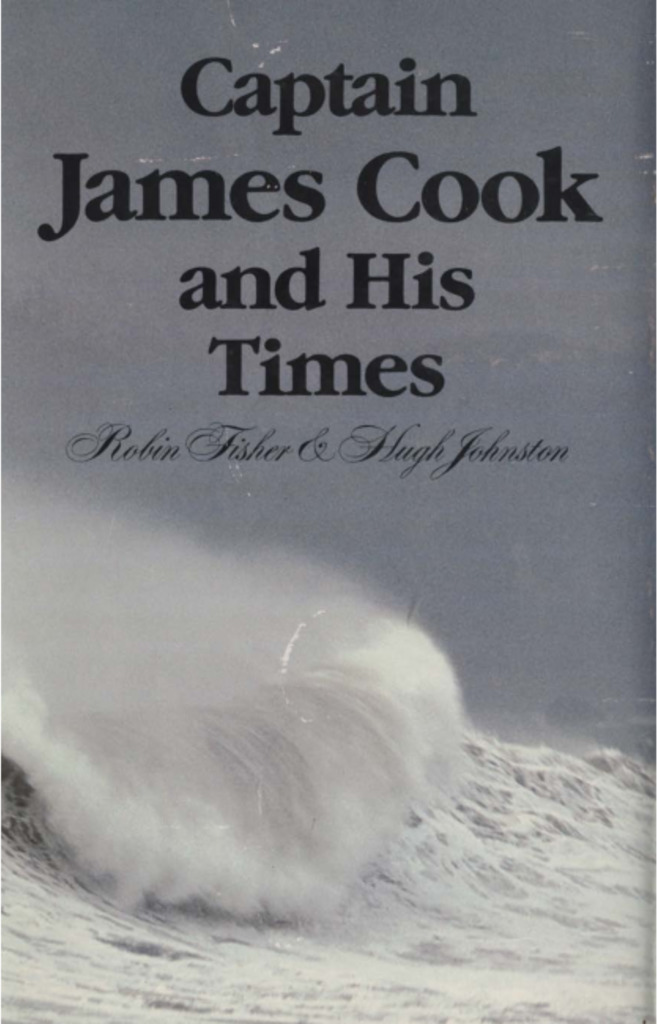
Captain James Cook and his times »
Publication date: 1979
The widespread effect in Europe of James Cook's voyages of discovery can be seen in the language of Coleridge and Wordsworth, the planning of ambitious Spanish missionaries and far-sighted Russian traders, and the letters exchanged by thinkers and scientists of many countries and two centuries. The round of commemorations that began in 1969 to mark the bicentennial of the three great voyages has stimulated research into Cook, and when an international symposium of Cook scholars was held in 1978 at Simon Fraser University, it brought a strong focus to the most articulate of this thought. Robin Fisher and Hugh Johnston have selected eleven papers that re-evaluate Cook's career and accomplishments and amply demonstrate the range and relevance of what was said at the Simon Fraser symposium. Terence Armstrong, Michael E. Hoare and Bernard Smith look at Cook's reputation and how it evolved. Howard T. Fry and David MacKay discuss two figures, Dalrymple and Banks, who lent much to Cook's reputation by means of their own genius. Sir James, Watt, in describing medical aspects of the voyages, sheds light on Cook{u2019}s death- the great puzzle of his biography. Alan Frost, Rudiger Joppien and Glyndwr Williams address Cook{u2019}s effects on art, literature and the language of geographers. Christon I. Archer analyzes why the Spanish allowed Cook to take credit for certain discoveries made by their own explorers. And Robin Fisher asks why we must assume that when Europeans first met men of other races, theirs was the dominant role. These essays, like all good writing by historians, cause us to look afresh at our culture and its evolution while they bring alive the era of James Cook- one of wide-ranging intellectual ferment.

Proterozoic-Cambrian phosphorites »
Publication date: 1979
First International Field Workshop and Seminar on Proterozoic-Cambrian Phosphorites, held in Australia, August 1978
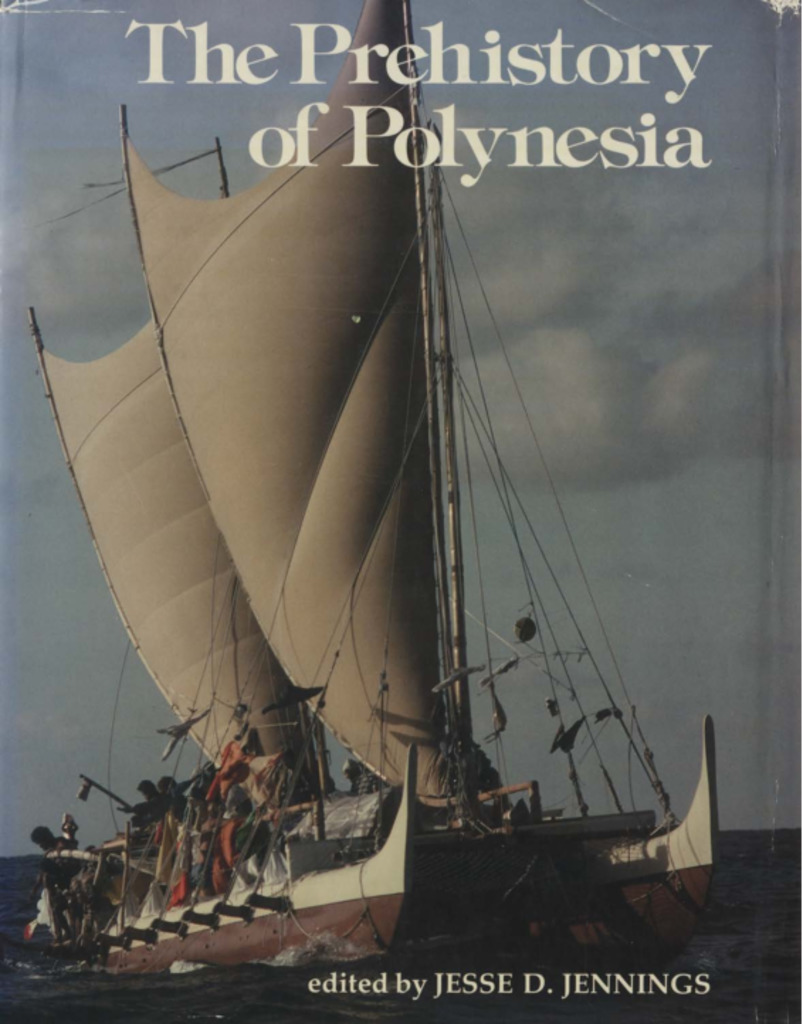
The prehistory of Polynesia »
Publication date: 1979
More than three thousand years ago incredibly skilled navigators from Southeast Asia began their voyages of discovery to the Polynesian Islands. Settling there, they developed a distinctive and complex culture. In the past two decades archaeologists and anthropologists have succeeded in reconstructing the course of those voyages and the emergence of a Polynesian culture. In this volume an outstanding group of scholars takes the story of Polynesia from its origins near the eastern tip of New Guinea to the first encounter with Europeans, just two hundred years ago. The reality of the islands' prehistory is far more exciting than the romantic fictions that have been concocted about it. In probing the Polynesian past, the scientists writing here have used not only sophisticated archaeological techniques but such adventurous methods as building a Hawaiian double-hull canoe and sailing it, with only the ancient navigational aids, across nearly 4,000 kilometers of open ocean to Tahiti. The focus of the book moves chronologically from the early Lapitan villages to Fiji, Samoa/Tonga, the Marquesas, Easter Island, Hawaii, the Societies, and New Zealand. Further chapters explore the evidence provided by studies of the contemporary Polynesians and their environment: linguistic, biological, ecological, and navigational. A final chapter on the Melanesian background extends the chronology to earlier times. The contributors are an international group of experts on Polynesian archaeology and an thropology. The editor, Jesse D. Jennings, is Distinguished Professor of Anthropology at the University of Utah.
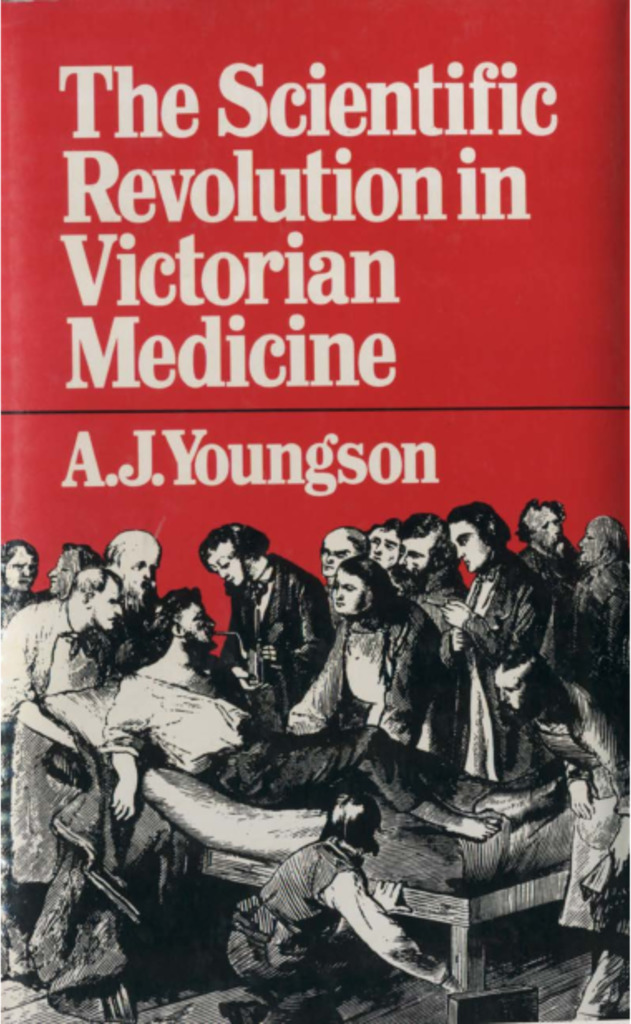
The scientific revolution in Victorian medicine »
Publication date: 1979
The discovery of inhalation anesthesia in 1846 began a new era in surgery. Simpson demonstrated the value of chloroform as an anesthetic, and many surgeons quickly adopted it. But chloroform was dangerous if mishandled and only after considerable controversy and numerous fatalities was its use thoroughly understood and established. Painless childbirth was a different matter, and Simpson had to fight a long battle before the ignorance and prejudices of his colleagues were overcome. Ten years later an even more lengthy struggle began over antiseptic surgery. The 'germ' theory, on which Lister's technique was founded, had few adherents among British surgeons, and his methods were deemed absurdly complicated. He was opposed and sometimes ridiculed by the most distinguished men in the profession, including Simpson. Over ten years were required to persuade the majority of British surgeons that Lister did actually achieve the results which he claimed and that it was possible for a competent surgeon to do equally well, if only he would take the trouble. This book shows that a great many factors interacted in delaying the introduction of these new ideas. The almost wholly unscientific nature of British medical education and practice before 1860 or 1870, detailed in the first chapter, was one factor; rivalry and distrust between London and Scotland was another. Genuine disadvantages in the new methods were not unimportant either, while personal animosities, failure to face the facts, and fear of the unknowable consequences of change all played a significant part.
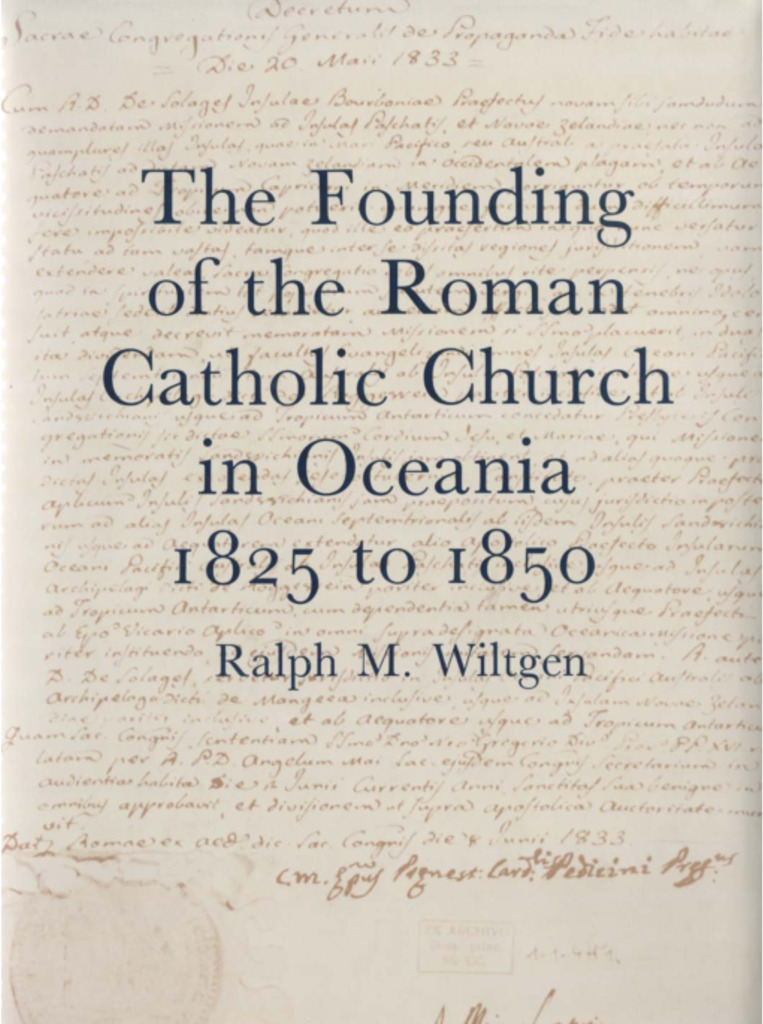
The founding of the Roman Catholic Church in Oceania: 1825 to 1850 »
Publication date: 1979
The Founding of the Roman Catholic Church in Oceania 1825-50 is the first detailed and documentary history of the seminal period of Roman Catholic missionary activity in Oceania. Before 1825 there had been sporadic missionary efforts but from the founding of the Prefecture Apostolic of the Sandwich Islands in 1825 there was continued development in Australia, New Zealand, Melanesia, Micronesia and Polynesia. This lively and dramatic narrative is told largely through the words of the participants in the events, from diaries, documents and letters, and ranges from the politics of the Vatican to sufferings on outpost islands. The focus of attention shifts from Rome to Paris, Valparaiso, Sydney, Honiara, Auckland and many other places, in a study of men and institutions, faith and emotion, rivalries and confusions, murder and annexation, God and mammon. The book{u2019}s great strength is the authority of the material on which it is based, archival resources from the Vatican and seven religious orders, much of it old handwritten documents in many languages, nowhere published. From these complex records and with linguistic skills Ralph Wiltgen has compiled a masterly account with the absorbing interest of a detective story. He works on many levels, juggling the pieces so that we have a wide view of what is happening everywhere and how the moves are interrelated. Powerful and ambitious men press their causes in Rome, their plans obstructed by vast distances, slow-moving sailing vessels, meagre funds, petty jealousies, limited personnel, and even death. In the lands remote from Europe the missionaries found themselves in a tropical climate, wrestling with strange tongues and confronted with puzzling cultures. Rivalries with Protestants, relations with governments, and the activities of idealistic businessmen were other aspects of the often slow and always painful progress in Oceania. The illustrations include maps drawn according to specifications found by the author in contemporary reports, and facsimiles of maps and documents which recapture the details of historic decisions. The whole is a book of particular interest to the peoples of Oceania and to a wider reading public caught up with the magic of the South Seas.
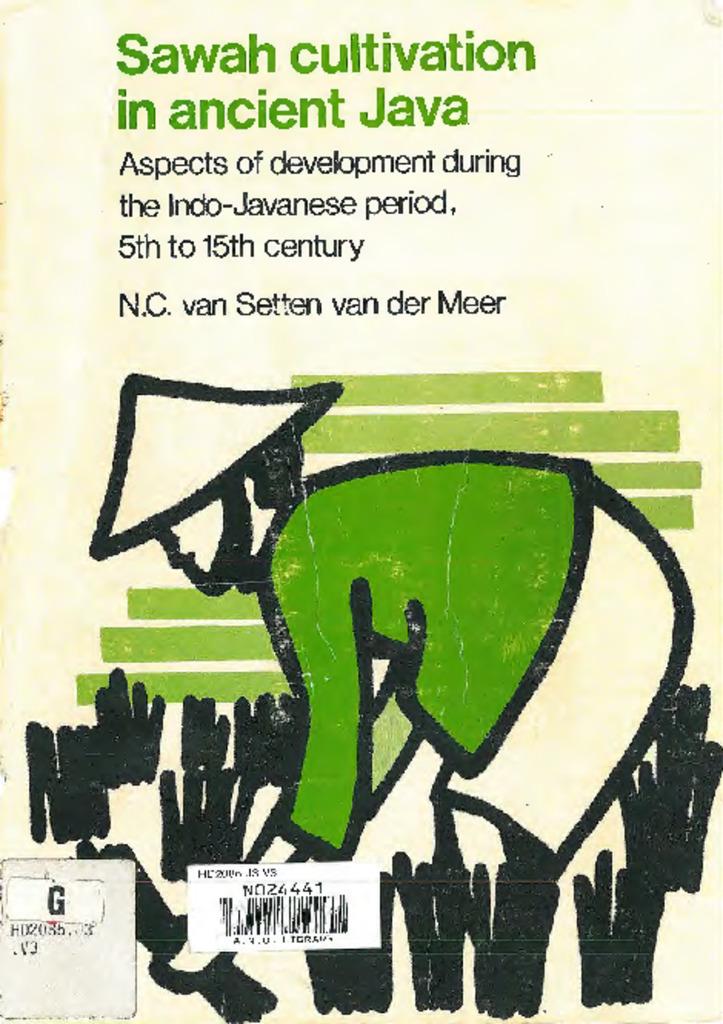
Sawah cultivation in ancient Java: aspects of development during the Indo-Javanese period, 5th to 15th century »
Publication date: 1979
Published Press Archives http://press.anu.edu.au/node/3723 1885_115095.jpg ANU Press Sawah cultivation in ancient Java: aspects of development during the Indo-Javanese period, 5th to 15th century Saturday, 18 August, 1979 Not available Archive Scholarly Information Services Van Setten van der Meer,



